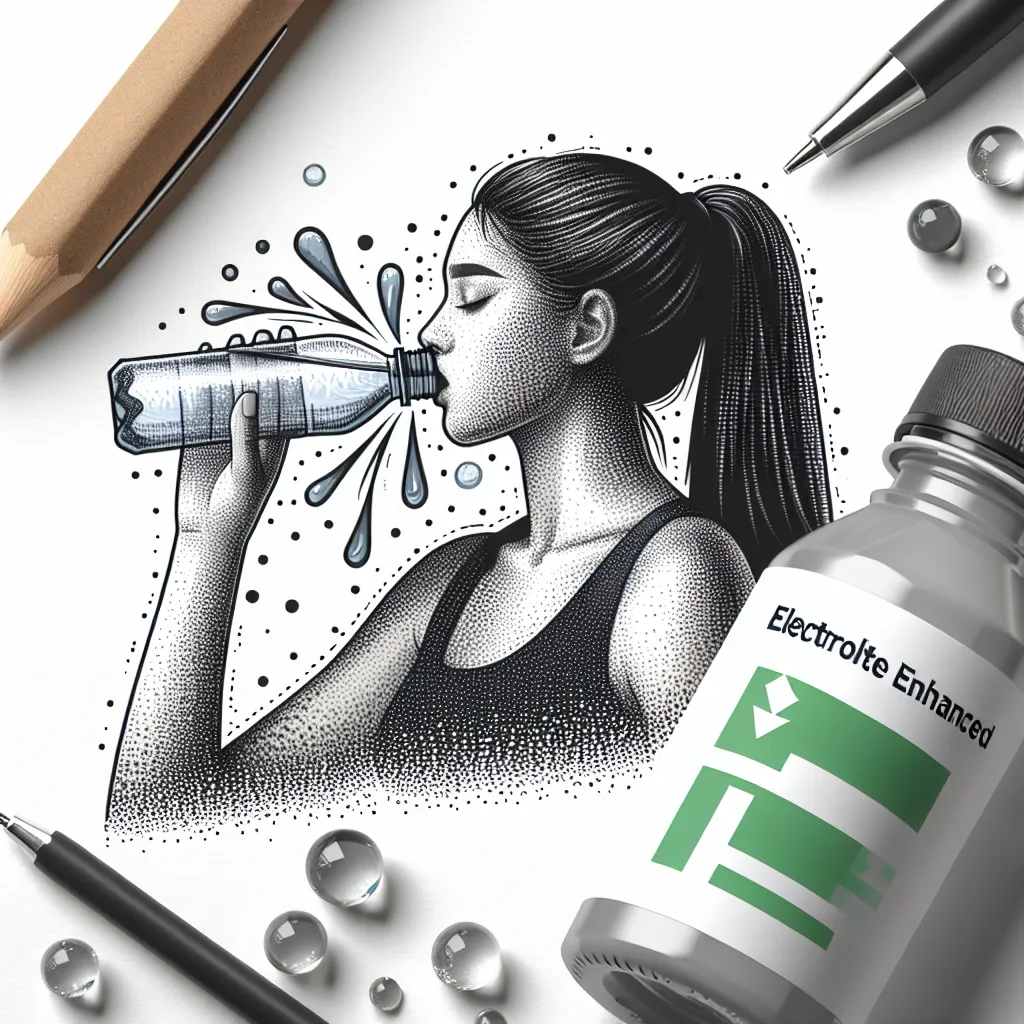Understanding the Role of Electrolytes in Hydration
Understanding the role of electrolytes in hydration is essential for maintaining proper bodily function and overall health. Electrolytes are minerals that carry an electric charge and are crucial for regulating nerve and muscle function, maintaining fluid balance, and controlling the body’s pH levels. The main electrolytes involved in hydration are sodium, potassium, calcium, magnesium, and chloride.
When we sweat during physical activity or in hot weather, we lose not only water but also essential electrolytes. This loss can lead to symptoms of dehydration, such as muscle cramps, fatigue, dizziness, and impaired cognitive function. Therefore, replenishing electrolytes is just as important as rehydrating with water.
Sports drinks and electrolyte-enhanced water are popular choices for replenishing electrolytes, but whole foods like fruits, vegetables, and nuts also contain these essential minerals. Understanding the right balance of electrolytes for your body’s needs is crucial, as an imbalance can lead to health issues such as muscle weakness, irregular heartbeat, and seizures.
In conclusion, maintaining proper hydration involves not only drinking an adequate amount of water but also ensuring the replenishment of lost electrolytes. Understanding the role of electrolytes in hydration is paramount for overall well-being and optimal bodily function.
The Impact of Hydration on Brain Function and Cognitive Performance
When it comes to staying hydrated, many people focus on the physical benefits such as improved athletic performance and better overall health. However, it’s important to recognize the significant impact that hydration has on brain function and cognitive performance. The human brain is made up of about 75% water, so it should come as no surprise that staying properly hydrated is essential for optimal cognitive function.
Research has shown that even mild dehydration can have a noticeable effect on various cognitive abilities including concentration, alertness, and short-term memory. In fact, studies have demonstrated that dehydration can lead to an increase in errors and a decrease in cognitive performance, making it clear that maintaining proper hydration is crucial for mental sharpness and productivity.
Dehydration has also been linked to changes in mood and increased perception of task difficulty, further highlighting the far-reaching impact of inadequate hydration on cognitive function. Additionally, adequate hydration has been found to support overall brain health and may even play a role in reducing the risk of cognitive decline as we age.
In conclusion, maintaining proper hydration is not only important for physical health but also for ensuring optimal brain function and cognitive performance. It’s clear that staying hydrated is a key component of overall well-being, and prioritizing hydration should be a fundamental aspect of any approach to personal health and productivity.
Debunking Myths: How Much Water Do You Really Need?
When it comes to hydration, there are plenty of myths and misconceptions that make it difficult to discern how much water is actually needed for optimal health. One common myth is the “8×8 rule,” which suggests drinking eight 8-ounce glasses of water per day. However, this one-size-fits-all approach does not account for individual variations in body size, activity level, and climate. The reality is that water needs can vary significantly from person to person.
So, how much water do you really need? The Institute of Medicine recommends that men aim for about 3.7 liters (125 ounces) of total water per day, while women should aim for 2.7 liters (91 ounces). This includes water from all sources, not just beverages. Factors such as age, sex, pregnancy, and breastfeeding status can also influence the specific hydration needs of an individual.
Beyond the standard recommendations, environmental factors such as temperature and humidity play a significant role in determining hydration needs. Hot and humid conditions can lead to increased sweat production, resulting in higher water requirements to maintain proper hydration levels.
It’s important to remember that the sensation of thirst is a reliable indicator of the body’s need for fluids. Additionally, monitoring urine color can provide valuable insight into hydration status. Clear or pale yellow urine generally indicates adequate hydration, while darker urine may signal the need to increase fluid intake.
In conclusion, the notion that everyone needs to drink a specific amount of water each day is a myth that overlooks the individualized nature of hydration needs. By considering factors such as age, sex, activity level, and environmental conditions, you can determine the appropriate amount of water for your body’s unique requirements.
Optimizing Hydration for Exercise Performance
Optimizing hydration is crucial for maximizing exercise performance. Proper hydration ensures that the body can effectively regulate its temperature, deliver nutrients to cells, and remove waste products. When it comes to exercising, maintaining an optimal fluid balance is essential to prevent dehydration, which can lead to decreased performance, increased perceived effort, and greater cardiovascular strain.
During exercise, the body loses fluids through sweating, and if these losses are not replaced, it can result in dehydration. Research suggests that even mild dehydration, as little as 2% of body weight, can have negative effects on exercise performance. Therefore, it’s important to start any exercise session well-hydrated and to continue to drink fluids regularly during activity, especially for prolonged or intense exercise.
Along with water, electrolytes such as sodium, potassium, and magnesium play a vital role in optimizing hydration for exercise performance. Electrolytes help maintain fluid balance, support proper muscle function, and aid in the absorption of fluids. Including electrolyte-rich beverages or snacks can be particularly beneficial for those engaging in longer duration or high-intensity activities.
It’s important for individuals to develop personalized hydration strategies based on their sweat rate, exercise duration, and intensity. Monitoring urine color, body weight changes, and thirst sensations can help gauge fluid needs during activity. By staying properly hydrated, athletes and active individuals can better sustain their performance, improve their endurance, and reduce the risk of heat-related injuries.
In conclusion, optimizing hydration for exercise performance involves maintaining a proper fluid balance, replacing lost fluids, and considering the role of electrolytes. By understanding and implementing effective hydration strategies, individuals can enhance their overall exercise experience and achieve better results in their physical endeavors.


